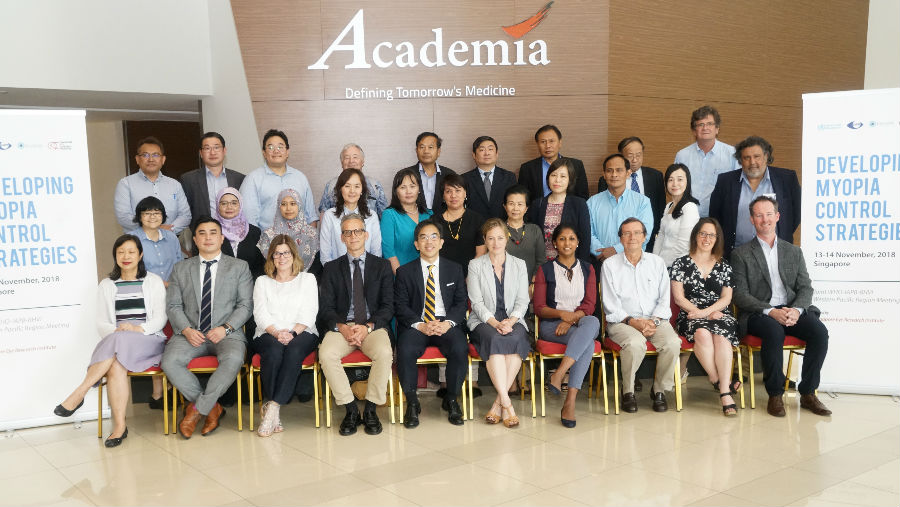Join a powerful, unprecedented alliance for better eye health for all.
Join IAPB-
Choose an alternate language here

The objective of the meeting was to use current evidence around myopia prevention and control to support global policy development. Participants of the meeting reviewed existing and new evidence and strategies to reduce the burden of myopia, putting focus on identifying effective public health interventions and strategies and fostering collaborations for implementation in the near future.
Representatives of national health ministries from 10 countries across the Western Pacific region attended and participated in the meeting. The countries represented were Cambodia, China, Japan, South Korea, Laos, Malaysia, Mongolia, Philippines, Singapore and Vietnam.
Among the other participants were Dr Andreas Mueller, Deputy Director of the WHO Collaborating Centre for Prevention of Blindness, Professor Serge Resnikoff, Former Director of the WHO’s Prevention of Blindness and Deafness Programme, Professor Padmaja Sankaridurg, Head of Myopia, Brien Holden Vision Institute and Professor Tien Wong, Medical Director of SERI.
Amanda Davis, acting in her role as the IAPB Chair for Western Pacific, facilitated the meeting. Thematic focus of the agenda included global burden of myopia, new and existing interventions and projected impact, translating science into practice, required policy change, workforce education and child eye health strategies, new technologies, implementation measures and regulatory developments.
“I am grateful to the participants who joined this meeting for bringing such an outstanding scope of knowledge, enthusiasm and innovation to the sessions, panels and workshops held. I was inspired by the practical discussions and tangible outcomes we documented during the two days,” said Ms Davis.
“The meeting was deemed very successful. The representatives from the countries were all able to share the current status of myopia prevalence and burden from their respective countries and what is currently in place in terms of prevention and treatment. Importantly, they left the meeting with a very good understanding of what is happening regionally and whilst each of the countries have very different needs, they were able to take away from the meeting what practical next steps they can take in their own country,” she concluded